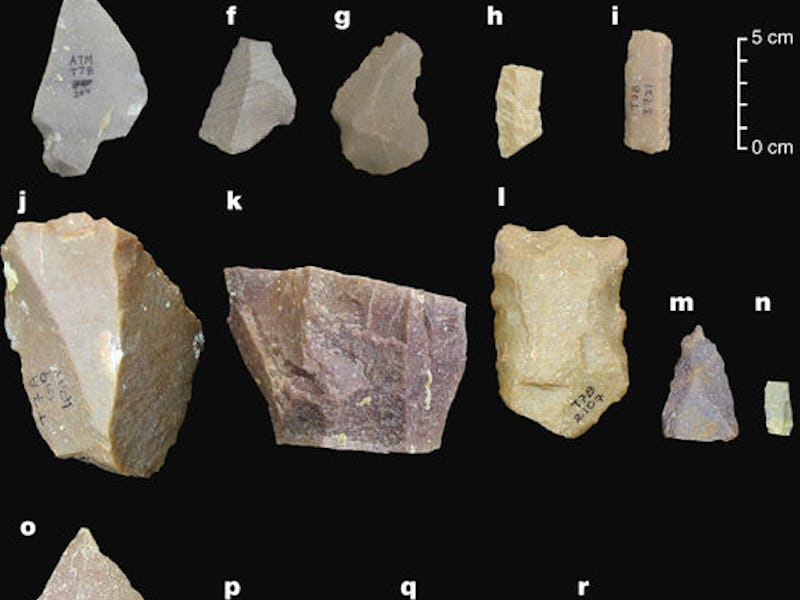Nobody Knows Whether Humans Made These Ancient Stone Tools Found in India
This find was unexpected.

Technology’s history is undergoing a re-examination after scientists announced on Wednesday the discovery of tools created about 385,000 to 172,000 years ago in an unexpected location. Unearthed along the southeast coast in India, the tools call into question previous estimates that tools came to India less than 140,000 years ago. Artifacts of a similar nature and age have previously only been found in Africa, so the newfound tools’ existence is, understandably, causing some consternation. Experts can’t help but question: What ancient hominins created them?
In the paper, published in Nature, the researchers announce that it’s too soon to say whether the tools were created by Homo sapiens, Neanderthals, or another subspecies of hominin. No human fossils were found with the tools, making it unclear whether the tools were created onsite or arrived with a migrating population. If they were created by roaming Homo sapiens, this means modern humans left Africa earlier than scientists previously thought.
Things are confusing enough already: Earlier in January, researchers announced they found a jawbone in Israel that indicated humans left Africa between 177,000 to 194,000 years ago — which was already 50,000 years earlier than scientists had hypothesized.
Some of the stone tools uncovered in India.
In an editorial summary published with the paper, Nature’s editorial teams note that because finding human remains from the Middle Palaeolithic era is rare, turning to examinations of stone tools can often be useful for charting the progress of human evolution. The researchers behind this dig used a technique called infrared-stimulated luminescence to determine the last time sediment grains on the tools were exposed to light, which in turn revealed a rough estimate of when they were created. The 7,200 tools are believed to have been created from quartz via a technique called Levallois.
While the new dates on these tools significantly pushes back the date when Middle Palaeolithic technology was believed to emerge in India, some experts are very skeptical about whether this means groups of modern humans moved out of Africa thousands of years earlier than previously believed.
“I simply don’t buy it,” Michael Petraglia, Ph.D., of the Max Planck Institute for the Science of Human History told the Washington Post. Petraglia, who was not involved in this research, says that it’s more likely that other hominins on a different branch of the family tree created them.
Maybe it was a moment of spontaneous genius that hominins simultaneously shared across geographic boundaries; or maybe it was a technique learned by some Homo sapiens during a Neanderthal exchange. Either way, it means that human-like creatures were way more technologically advanced outside of Africa much earlier than we realized.